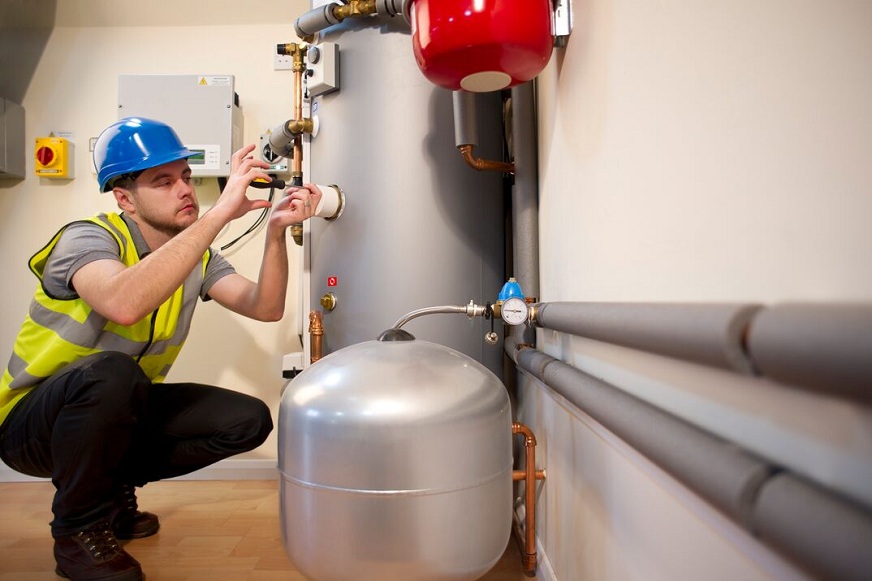Boiler replacement can be an expensive and time-consuming task. However, there are ways you can reduce the cost of replacing your boiler. This blog article shares a few tips on how to do this from our team in Exeter.
What is the difference between a boiler and a heating unit?
Boiler Replacement Costs: What You Need To Know
A boiler is a large, metal enclosure that uses hot water and steam to heat your home. A heating unit is a smaller, less expensive version of a boiler that uses electricity to heat your home.
When should you replace your boiler?
If your boiler is more than 10 years old, it may need to be replaced. Older boilers tend to use more fuel, produce more heat, and have a shorter life span. Additionally, if your boiler has been damaged in any way – such as by a fire – you will need to replace it.
How much does it cost to replace a boiler?
The cost of replacing a boiler varies depending on the model and size of the boiler. The average cost to replace a standard domestic boiler is between £2,000 and £3,000. Be sure to find an installer that is experienced with installing boilers – they will be able to give you an estimate that is specific to your situation.
How much does it cost to replace your boiler?
If your boiler is more than 10 years old, it’s time to replace it. A new boiler can cost anywhere from £1,000 to £5,000, depending on the make and model. Here are some factors to consider when estimating the costs:
-The size of the unit: Boilers come in different sizes, from small personal units to large commercial boilers. The larger the unit, the higher the price.
-The type of boiler: There are two main types of boilers: forced-air and condensing. Forced-air boilers use hot air to heat water and produce steam; condensing boilers use a water-cooled coil to produce both heat and steam. They cost more than forced-air boilers because they require a more sophisticated heating system.
-The features installed: Some features, such as a digital control panel or automatic shutoff valve, can cost extra.
The overall cost of replacing your boiler depends on several factors, including the size of the unit, type of boiler, and features installed. To get an accurate estimate, talk to a qualified contractor or consult a manufacturer’s website.
Types of boilers
There are three main types of boilers: steam, hot water, and oil. Steam boilers use steam to produce heat. Hot water boilers use hot water to produce heat. Oil boilers use oil to produce heat.
Steam boilers are the most common type of boiler. They use steam to produce heat. Steam is created when water is heated and turned into vapour. The evaporated water turns into a gas and moves through the boiler. This gas is then used to produce heat. Steam boilers can be used for a variety of applications, including generating electricity and producing hot water.
Hot water boilers use hot water to produce heat. Hot water is usually used to temperatures cold water before it’s used in other parts of the building. When you turn on the hot water faucet, the hot water comes out at a high temperature (usually around 120 degrees Fahrenheit). This high temperature causes the cold water inside the tank to turn into steam. The steam then moves through the boiler and produces heat. Hot water boilers can also be used to produce steam for heating purposes.
What are the benefits of replacement boilers?
The benefits of replacement boilers depend on the age, size and make of your boiler. However, some common benefits include:
-Lower energy bills: A new boiler will typically use less energy than an old one, resulting in cheaper bills. This is because a new boiler is more efficient and uses less hot water to produce the same amount of thermal energy.
-Improved safety: Older boilers can be more dangerous because they may not have the safety features (like automatic shutoff systems) that modern boilers do. A new boiler will typically have these features, so you’re safer overall.
-Reduced maintenance costs: Boilers require regular maintenance to keep them running smoothly, but a new boiler will typically require less maintenance than an old one. This is because a new boiler has fewer moving parts and doesn’t require as much regular cleaning.
The Cost of Boilers by Cities in The UK
When it comes to boiler replacement in the UK, not every city is created equal.according to a study by uSwitch, the average cost of a new boiler installation in the UK is £1,329. However, this price varies significantly from city to city. In London, for example, the average price of a new boiler installation is £4,814. Meanwhile, in Birmingham the average price is just £1,144.
Of course, not all boiler replacements are priced equally. For example, a new boiler installed in Manchester will cost £2,048 on average while one installed in Edinburgh will cost £3,448. So if you’re looking to save money on your next boiler replacement in the UK, it’s important to do your research and compare prices before making a decision.
Another thing to consider when deciding whether or not to replace your boiler is your home’s age. Boilers typically last between 10 and 15 years before they need to be replaced. If your home was built within the last 10 or 15 years, it’s likely that your current boiler is still functioning relatively well and may not need to be replaced right away.
A boiler replacement in Exeter is usually done on a quarterly or yearly basis to ensure that the boiler is running at optimum levels with no downtime. If you have a gas boiler, you should consider having your gas pipe checked every 30-45 days for leaks or other problems.If your boiler doesn’t work properly, it can be dangerous for you and your family. Your home may not be as comfortable as it was before and if your water pipe breaks, you could be in danger of being electrocuted by the electricity flowing through your hot water pipe. For safety reasons, it’s important that you hire an experienced contractor to replace your old boiler with a new one today.
When should I replace my boiler?
If your boiler is more than 10 years old, it’s time to replace it. Boilers typically last between 7 and 10 years with proper maintenance. However, if your home has high energy costs or you notice that your boiler is not performing as well as it used to, you should replace it sooner. Some factors that can lead to a weaker boiler include:
-A dirty boiler
-A bad water supply
-Too much water usage
-Insufficient ventilation
-Excessive wear and tear
Conclusion
As a homeowner, one of the most important things you can do for your home is to keep it running smoothly. This means knowing about boiler replacement costs so that you can make informed decisions when it comes to upgrading or replacing your heating and cooling system. In this article, we will go over the different types of boilers and what factors affect their price, as well as discuss some common replacement costs. Have questions about how boiler replacement works or what factors affect pricing? Leave them in the comments below and I’ll do my best to answer them!

